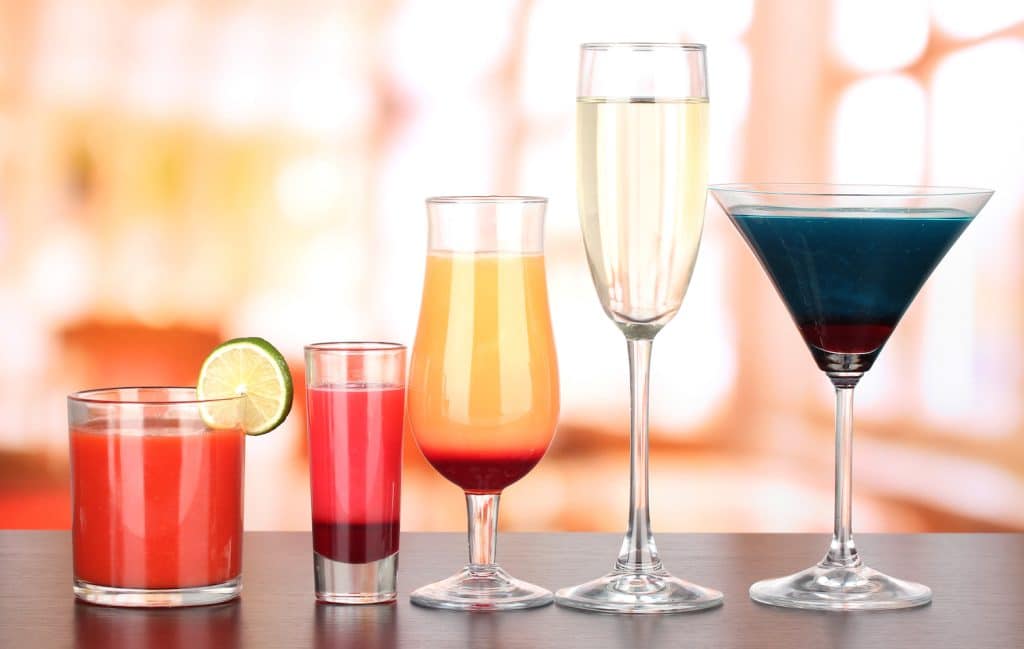focus
- There is no magic food or drink that will bring about a perfect night’s sleep.
- Eating dinner too close to bedtime may interfere with sleep.
- Being tired increases the urge to eat high-calorie foods.
- Foods such as milk, fatty fish, and certain fruits may help improve the quality of your night’s sleep.
- Caffeine, alcohol, and reflux-causing foods can cause sleep disturbances and changes in sleep cycles.
When it comes to health, sleep is just as important as diet and exercise.
But a bad night’s sleep can cause more problems than just feeling groggy, especially if you’re on a weight loss journey. Lack of sleep can affect your mood, metabolism, and even the food you want to eat.
“Many factors can affect the quality of your sleep, but diet has the biggest impact,” says registered dietitian Erin Palinski-Wade.
You can eat different foods to help you sleep, but when Eating is just as important, she said. “A helpful change might be mealtimes.”

Palinski-Wade said chronotrophy, or the impact of food and meal timing on sleep-wake cycles, is a hot topic in nutrition research.
It turns out that when meal times are out of sync with circadian rhythms, it can cause indigestion, which can interfere with sleep. Preliminary research suggests that eating dinner less than three hours before bed can lead to poor sleep quality.
The relationship between food and sleep is complex. There’s no magic snack that will make you drowsy like a sleeping pill, but you can make adjustments to your diet to help you rest better.
Here’s what you need to know, based on Palinski-Wade and scientific research.
The relationship between food, sleep and weight
There are definitely some foods that will keep you awake. We know what they are for good reason—lack of sleep can make losing weight more difficult. The research results are as follows:
What foods should you avoid before bed?
Before we get into the sleep-boosting menu, let’s take a look at which foods and drinks may disrupt your sleep.


5 foods that can help you sleep better
Despite what TikTok influencers may promise, there’s no evidence that any food or drink will instantly put you to sleep.
But research does show that certain foods can increase the likelihood of a good night’s sleep.
1. Tart cherry juice
“A pilot study showed that drinking fresh tart cherry juice twice a day was effective in shortening the time it took to fall asleep and may be partly responsible for improving insomnia in people over 50,” Palinski-Wade explains.
This may be because tart cherries aid in the production of melatonin. Melatonin is a hormone your body produces when it gets dark. It causes drowsiness and helps you fall asleep.
While research is still limited, if you’ve been having trouble falling asleep, adding tart cherry juice to your daily routine may help. If you want a little sparkle to offset the sour taste, you can mix it with sparkling water.
2. Kiwi fruit
Another fruit that can improve sleep is kiwi. “It’s a good source of serotonin,” Palinski-Wade says.
Serotonin is a neurotransmitter that plays a role in controlling behavior, mood, and memory. Higher production of serotonin plays a role in the sleep-wake cycle. Your body needs it to produce sleep-inducing melatonin.
3. Foods rich in tryptophan
You may have heard of tryptophan. This hormone is (incorrectly) associated with Thanksgiving turkey and post-Thanksgiving naps.
Even though turkey isn’t a cure for sleep, that doesn’t mean foods higher in tryptophan can’t help it. “Tryptophan-rich foods such as whole grains, milk, and high-protein diets containing tryptophan may help improve sleep outcomes,” says Palinski-Wade.
Interesting facts: MyFitnessPal has one of the largest food libraries with over 19 million foods. Start tracking your bedtime snacks on the app!
4. Fatty fish and seafood
Fatty fish like salmon can be a sleep-inducing food. Fatty fish is rich in vitamin D.
In addition, fish is rich in omega-3 fatty acids. Preliminary research suggests a link between low levels of omega-3 fatty acids and sleep problems.
5. Milk and dairy products
Dairy is another food that contains melatonin (and/or tryptophan), so drinking a glass of warm milk or some cheese during the day may help you fall asleep. One study of hospital patients found that those who drank honey mixed with hot milk for three days noticed improved sleep.
bottom line
If you’re looking for ways to get more rest, making some key dietary changes may help. Stay away from foods and drinks that keep you awake, look for foods with natural sleep-promoting properties, and try not to eat dinner right before bed.
One way to learn more about factors that affect sleep is the MyFitnessPal Sleep feature. This in-app sleep feature integrates sleep data from Android Health Connect and Apple Health.
All you need to do is check your sleep data every morning. The app will show you how long you slept and whether you had trouble falling or staying asleep.
You can then review your logged meals for the day to see if the food affected the quality of your sleep. Over time, you’ll be able to identify sleep-promoting foods and change your eating habits to improve your sleep.
If you’re ready to improve your sleep and achieve your health goals, connect your sleep tracker today.

